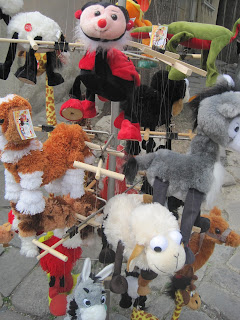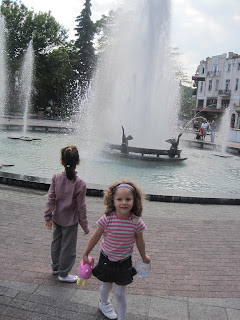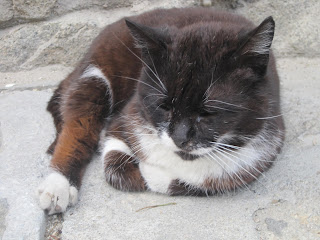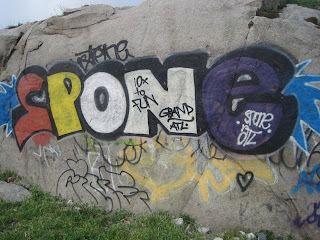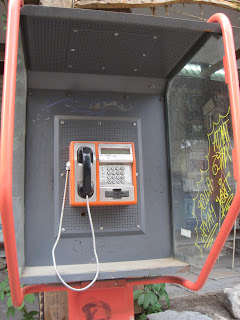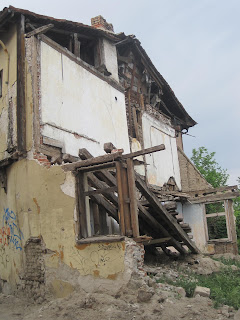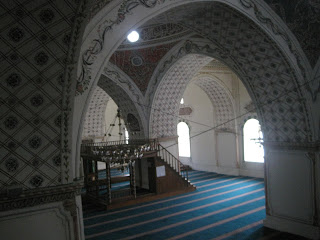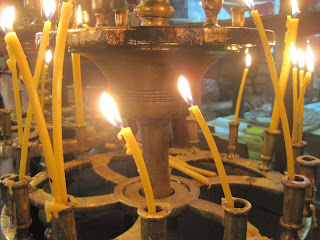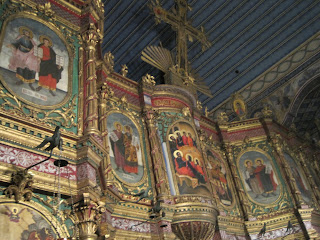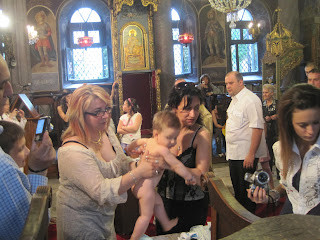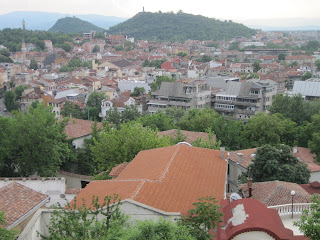
I took an overnight train from Istanbul to Plovdiv, and arrived in the cultural heart of Bulgaria at 11 a.m.
The city struck me as tourist-unfriendly from the get-go. I went to reserve a train ticket from Plovdiv to Sofia. I showed the woman behind the counter my Eurorail pass and I pointed to the train I desired to take from a Eurorail book. She stared at me with obvious irritation, finally blurting out the word “information” and dismissing me with a wave.
I headed to a nearby information desk.
I’m in a foreign country and I don’t speak any language but English so I don’t have a leg to stand on. However, I was surprised that a woman manning an information desk at the train station in the 2nd largest city in Bulgaria couldn’t speak a few words of English.
Her inability to understand me was not what irked me, however. It was her attitude. After I asked her where I could go to reserve a train ticket to Sofia, she started rambling off to me a string of words in Bulgarian even though it was obvious I didn’t know what she was saying.
She had a disgusted expression on her face and looked like she wanted to reach through the glass window and slap me. I’m sorry I don’t speak Bulgarian, lady!
I walked back to the ticket counter and asked a man in a business suit if he spoke English. Another man in his mid-20s heard me and swooped in: “I’ll help her.” He was a Bulgarian college student that spent the last two years studying abroad in Vienna. He was the sweetest guy. He escorted me to the ticket counter and translated for me. Turns out I can’t make a train reservation from Plovdiv to Sofia. The woman behind the counter said that if I showed up on Monday morning with my Eurorail pass it would be good enough to walk on the train.
I headed toward my hostel, but my impression of Bulgaria was tainted from the two women at the train station. I found myself being as intolerant as both of them, looking down my nose at everyone I met.
I saw these thoughts running through my head and I felt guilty. I knew that I was being intolerant. I decided to give Bulgaria a second chance.
I headed into a Tourist Information Center to get a map and was again treated rudely by a Bulgarian woman behind the desk. Ummm, do I have “asshole” written on my forehead?
I went to lunch and decided to take myself out of the equation. I sat back and observed my Bulgarian waiter talking with other customers. He looked pissed off.
I looked around. Many people looked pissed off.
The only conclusion I could draw is that, for Bulgarians, life is more difficult than the life I lead in America.
When I was in Istanbul I met Fikret and Veysi, two guys that work at the Sydney hostel. When I met them, I assumed that they were in their early 30s.
One morning they started talking to me in stilted English and I learned that they are 22 and 25-years-old (the 25-year-old already has three children).
I told Yusef, the hotel manager, how surprised I was that Fikret and Veysi were younger than me. “They look to be in their early 30s,” I said. Yusef told me that life ages people faster over here. There’s more stress.
I know this to be true.
I deployed to Afghanistan when I was 24. Before the deployment, people mistook me for 19 or 20. People asked me all the time how I was old enough to be a second lieutenant. After the deployment, people assumed that I was 24 or 25, so it seems like Afghanistan aged me five years in 15 months.
In fact, I did look much older upon return.
Life in Afghanistan was rough. My skin developed wrinkles and sun spots. I lost 15 pounds. I chipped several teeth. There wasn’t a beauty parlor around the corner, garbage men to clean the streets, bottles of cleaning fluid readily available to keep everything spick and span.
Instead, there was war, poverty, and sand storms.
It made me realize how lucky I’ve been, how easy my life has been compared to so many others.
Once, at a family reunion, one of my relatives remarked that people in poverty-stricken parts of the world deserve to be poor. “They’re so lazy,” she said. “They have no ambition.” I knew then how wrong she was. And that was before Afghanistan. Before Turkey. Before Bulgaria.
We got in a tussle.
I’m not a bleeding heart liberal. I believe that people can rise up out of poverty, from less-than-ideal circumstances through hard work and determination. But I also know that it’s far easier to do so when you’re born with a silver spoon in your mouth. When you come from an upper-middle class family and a two-parent household. When you don’t have any type of disability. When you’re sent to good schools. When none of your friends or family do drugs or are in a gang.
Bulgaria gave me more tolerance. I realized, again, that the people I’ve met on my travels have a story to tell. (Even if the story they taught me was how NOT to treat a foreigner when I’m back in my home country.) I understood, again, that life for others is oftentimes harder than the life I’ve lived. Or just a lot different.
Today I’m trying to give Bulgaria a third chance.

